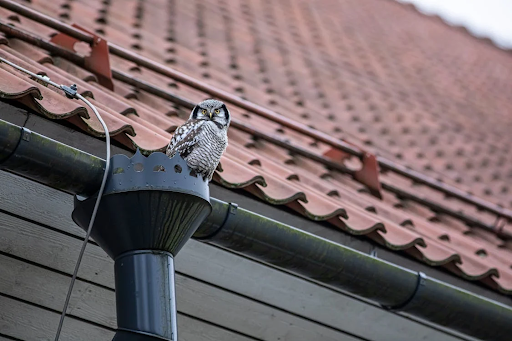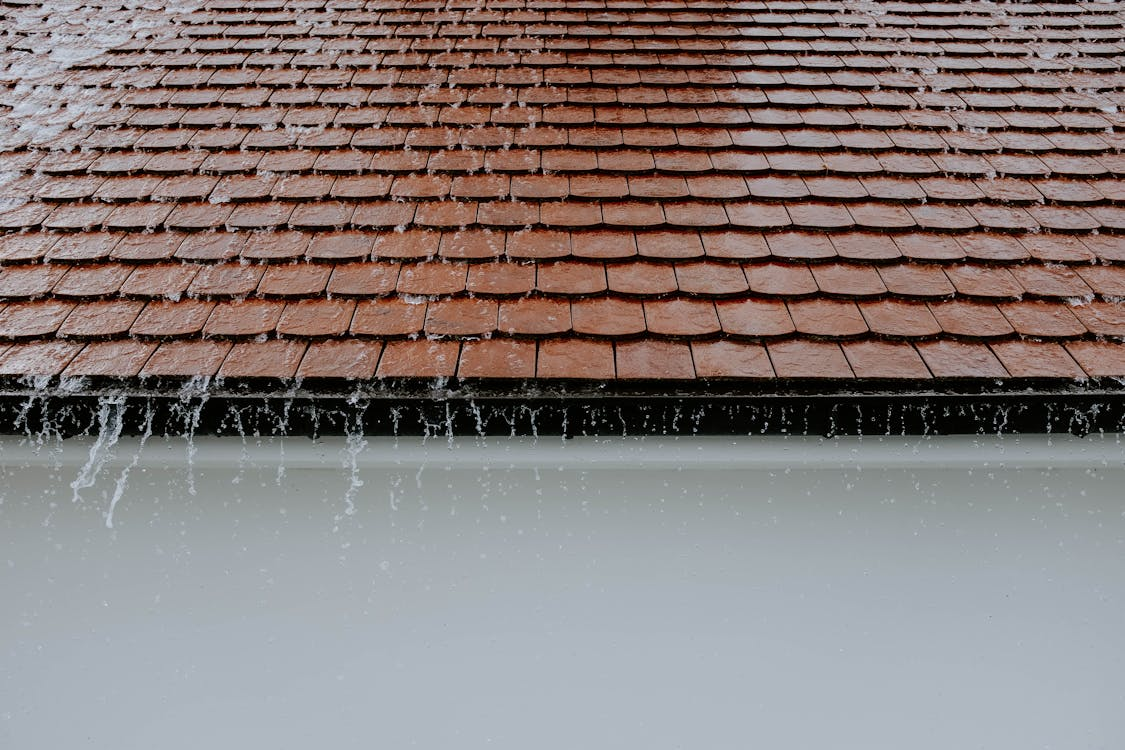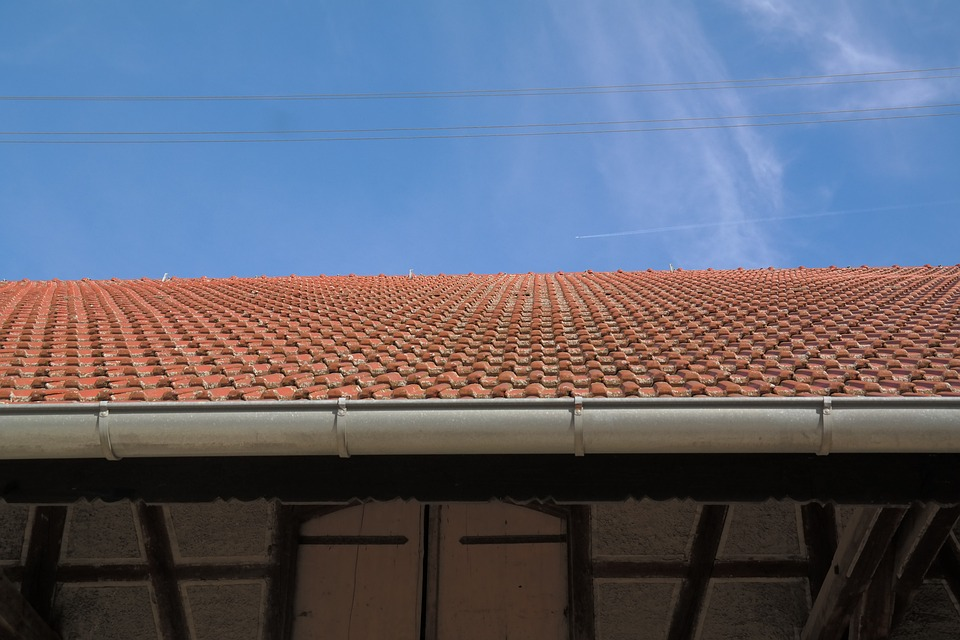What is a Gutter Downspout? Importance, Types, and Working


Gutters are very crucial for your home as they collect and divert water away from your roof during rain. They protect your home from any sort of water damage. A Gutter downspout is a key component of a gutter system, it plays an important role in this water management system by channeling the collected water from the gutters to the ground or drainage system. If you don’t have a properly installed and maintained downspout, there is a high risk of damage to your home's foundation.
In this blog post, we’ll learn what a gutter downspout is, how it works, its types, and maintenance tips for enhanced performance.
What Are Gutter Downspouts?
Gutter downspouts are an important component of a gutter system. These are vertical pipes or tubes that carry rainwater from your gutters to the ground or another specific drainage area. These downspouts are essential for avoiding the overflow of rainwater from the gutters and causing damage to the roof, foundation, and exterior of your house.
Rainwater flowing off your roof can create several problems if not properly managed. If the water isn’t directed away from the house, it can accumulate around the foundation, resulting in damages like cracks, leaks, or even flooding in your basement. A property-installed gutter downspout helps to ensure that all the rainwater is safely directed away from your house.
Why is a Gutter Downspout Important?
Gutter downspouts are essential for the protection of your house from rainwater. These downspouts offer several benefits and a few of them are given below:
1. Protecting the Foundation:
A foundation is the most important part of your house as it carries the weight of the whole house. A good foundation can save you from earthquakes and other natural disasters. However, in extreme rain, the rainwater pools around the foundation and can destroy it. This is where a gutter downspout comes into play by draining the water away from the house, ensuring the foundation is safe from water. If rainwater accumulates near the foundation, it can seep into your basement and lead to water damage. So, to save your house from such structural damage, invest in some high-quality gutter downspouts.
2. Preventing Erosion:
A good gutter downspout can direct water away from the sides of your house and this will help in preventing soil erosion. If your house doesn’t have proper drainage for the gutter system then the water falling off the roof can ruin the soil around your property, eroding landscaping and making the ground uneven.
3. Preserving the Siding and Roof:
When the rainwater overflows from improperly installed gutters, it will fall onto the sidings of your home. This can result in causing water stains or other damage, especially in wooden panels. Gutter downspouts will direct the water away from the walls and avoid such damage.
4. Improving the Lifespan of Your Gutters:
Another major benefit of a gutter downspout is that it contributes to the durability and longevity of your gutters. These downspouts reduce the chances of clogging and overflow and ensure that the gutters don’t become weighed down with extra water. If there is any defect in these downspouts then it can lead to rusting or formation of leaks.
How Does a Gutter Downspout Work?
The gutter downspout is a part of the rainwater management system that works simply and efficiently. Below are the steps given that are followed by a gutter downspout for water management:
- Water Collection: When rainwater falls on your roof, the gutters collect all the water.
- Water Direction: The gutters direct the water into the downspouts that are sloped slightly downward for an easy and proper flow of water.
- Water Channeling: When the rainwater reaches the gutter downspouts, it is channeled downward through the pipes and keeps the home’s foundation safe from water.
- Water Dispersion: The downspout discharges the rainwater onto the ground or any other specific drainage system.
For maximum performance, make sure to properly install these downspouts in the right position. You can also add more extensions or splash blocks to keep the water further away from the foundation of your house.
Types of a Gutter Downspout
Downspouts are made up of different materials and designs and each offers unique benefits. Here are some of the most famous and common types of the gutter downspouts:
1. Aluminum Gutter Downspout
Aluminum is the most popular material used in the manufacturing of gutter downspouts. Aluminum is lightweight, durable, and resistant to rust which makes it a perfect choice for homeowners. These downspouts require low maintenance and are available in different colors and finishes. This will allow you to protect your house from rainwater without compromising on the curb appeal.
2. Vinyl Gutter Downspout
Vinyl is another popular material used for downspout production and it is a more cost-effective option. Vinyl downspouts are mostly less durable as compared to other metal options but they are very lightweight and resistant to corrosion. They are a popular choice for homeowners looking for a high-quality budget-friendly option. Vinyl downspouts are quite easy to install and can survive extreme temperatures.

3. Copper Gutter Downspout
Copper downspouts are a high-end option that adds an attractive touch to any home. Over time, copper develops a green patina, giving it a classic look that some homeowners find appealing. Copper downspouts are highly durable, long-lasting, and resistant to corrosion, but they are more expensive than other materials.
4. Steel Gutter Downspout
Steel is a strong material and the downspouts made from steel are also strong and resistant to damage. This makes them an ideal choice for homes located in areas with heavy rainfall. Steel downspouts are also available in different designs and finishes. If properly coated, these downspouts will be resistant to rust. If the coating gets damaged or worn out, it will be more prone to corrosion, so regular maintenance is very important.
5. Galvanized Steel Downspout
Galvanized steel is a special type of material used in the making of gutter downspouts. Steel is used but it is coated with a layer of zinc to prevent rusting. This type of gutter downspout is designed to be durable and affordable at the same time. However, they require some regular maintenance to keep the zinc coating intact because it can still catch rust if proper care is not given.

Installation of Gutter Downspout
Installing a gutter downspout is not a complex task but it is not straightforward as well. It can give you physical stress and can consume significant time. A small misalignment can lead to poor functioning so, it is better to hire some professional service for this installation. They will have a much better and more detailed idea of every minor aspect related to downspout or gutter installation.
You can contact Billy.com to get more assistance and hire any professional service that will offer quality installation and efficient working of these gutter downspouts.
Maintenance Tips for Your Gutter Downspout
Proper and regular maintenance is important for the efficient functioning of your gutter downspouts. Here are some valuable tips for keeping these downspouts in good shape:
1. Regular Cleaning
Regularly inspect your gutters and downspouts for waste after every 6 to 8 months. You don’t need any special tools to clean these gutters as you can just simply use a garden hose to flush out any blockages. This will also make sure that the water is flowing freely.
2. Leakage Inspection:
Check for any major or minor visible cracks or leaks along the downspout. If you notice something wrong then immediately seal them with a waterproof sealer. This will help in preventing water leakage, however, if the damage is greater then it is better to replace the affected section of the downspout.
3. Check Alignment:
A proper alignment of the downspout is very essential as it directly influences its functionality. Make sure that the downspout is perfectly aligned with the gutters and that both are securely fastened to your home. If a gutter downspout is misaligned, rainwater will not be directed properly and can damage your house.
4. Install Downspout Extensions:
Installing downspout extensions or splash blocks is very important to prevent water from pooling near the foundation of your house. These extensions enhance the functionality of the gutter downspouts and direct the water away from your house as much as possible.
Conclusion
A Gutter downspout is an essential component of the water management system of your house. It can direct rainwater away from your property which will result in preventing any damage to your home’s foundation and exterior walls. Make sure to do regular maintenance and timely repairs of these downspouts to avoid major issues that can cost you a lot of money and time.
Be careful while installing these downspouts because any misalignments can result in their malfunctioning. You can also hire any professional service through Billy.com for a proper installation of the gutter downspouts. This professional service will take care of every small aspect and ensure maximum performance.
FAQs related to Gutter Downspout
What is a gutter downspout?
A gutter downspout is a vertical pipe attached to the gutters. It is used to carry the water from gutters and channel it out to the ground or other connected drainage systems.
What are the benefits of downspouts?
A gutter downspout directs water away from your property which results in protecting the foundation and exterior walls of your home from rainwater damage.
How to clean the gutter downspout?
Cleaning the gutter downspout of your house is not complicated and doesn't need any professional tools for this work. You can use gloves or a garden hose to remove any blockages.
How can I Install a gutter downspout?
You can hire a professional service with the help of Billy.com for the installation of gutter downspouts in your house. This will protect your home from all sorts of rainwater damage.
Do gutter downspouts require maintenance?
Regular maintenance is recommended because it can enhance the durability and longevity of your gutter downspout. You should regularly clean it and check for any leaks, cracks, or alignment issues.
